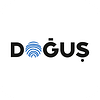This is a core-level technical course for people looking to extend their digital forensic knowledge beyond conventional device analysis.
COURSE OVERVIEW
On this five-day practical course you will investigate forensic case studies, applying the principles, knowledge and techniques learnt during the course. It will help you protect your IT environment by showing you how to conduct malware analysis, from first principles all the way to investigating network activity stemming from malicious software infection that your AV software has failed to detect.
.

























İş Bankası
Sanal sınıf ortamı bizim açımızdan çok faydalı oldu. Bundan sonra eğitimleri bu şekilde almak isteriz. Kurulumlarda bazı eksiklikler vardı ancak sonradan giderilerek sorun çözüldü. Eğitmen de sanal ortamın kullanımı konusunda ufak ipuçları ile destek oldu.